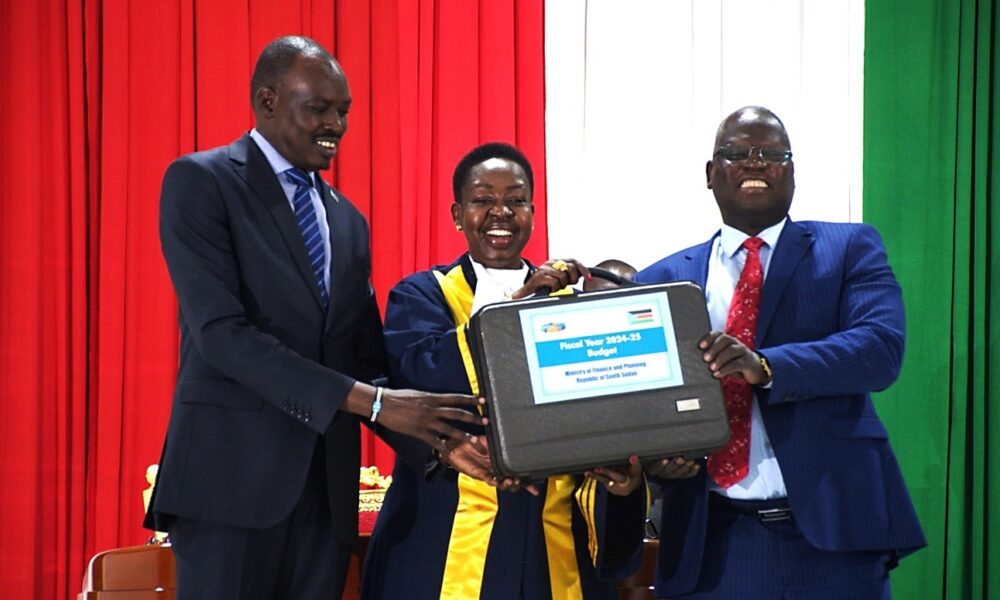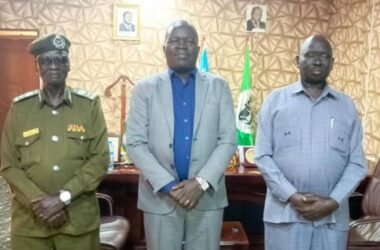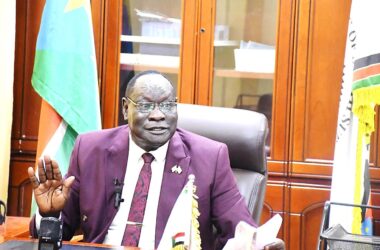By Deng Ghai Deng
Concerns are mounting among residents of Juba regarding the draft budget for 2024/2025 recently submitted to the Transitional National Legislative Assembly (TNLA) by National Minister of Finance and Planning, Marial Dongrin Ater.
Last week, minister Dongrin, presented the Draft National Budget to parliament, three months after the end of the 2023-2024 budget. The proposed budget outlines a total expenditure of SSP 4.172 trillion.
This year’s budget focuses on sustaining peace, ensuring political stability, achieving macroeconomic recovery, and improving the well-being of citizens through strategic resource allocation.
However, Juba resident, Jenifer Keji, is questioning the efficacy of passing a budget when civil servants and organized forces have gone nearly a year without salaries.
“The budget would have a very little meaning or impact when the lives of the South Sudanese people who expect to receive services from civil servants, who are the technical people in government programs, remain unaddressed,” Keji said.
“The ongoing failure to pay government employees directly impacts critical services in health, education, and security, leading to increased insecurity and school closures.”
Keji said the impact of failure to address priorities is evident, with ongoing security issues and disruptions in education, as seen when teachers employed by the government were forced to shut down schools due to unpaid salaries.
Economic analyst Dr. Abraham Maliet said without enhancing budget accountability, the draft budget may fall short of its intended impact on the lives of ordinary citizens.
“An important element for you to do a budget is to have people participate in its development,” he explained. “When you do the budget in the absence of the people, then there’s something not right there.”
Dr. Maliet further criticized the late presentation of the budget and the failure to provide an expenditure report for the previous fiscal period.
“If you don’t account for the previous quarter, how are you going to inform the next one? This is an accountability issue,” he asserted.
Compounding these concerns is the absence of a necessary audit, which should have been completed prior to the budget presentation.
An Independent Legal expert in Juba, lawyer Philips Anyang Ngong, pointed out that the lack of audit raises questions regarding the budget’s legitimacy and compliance with legal requirements.
“You can’t project to spend what you don’t have or know where to tap it,” Ngong said, “In principle, you project it, budget it and recover it other than budgeting for what is not determinable as our government budgets are all on papers.”
Ngong said lack of clear mechanisms for revenue recovery is a reason why the government struggles to meet even basic salary obligations.
As the government prepares to finalize the budget, citizens and experts alike are calling for greater transparency and responsiveness to the pressing needs of the population.



